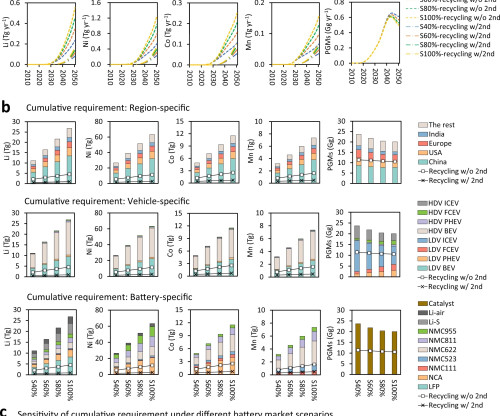Cornell study examines trade-off between critical metals requirement and transportation decarbonization
Green Car Congress
APRIL 17, 2023
—Fengqi You, senior author Currently, critical metals and minerals are centralized in politically unstable Chile, Congo, Indonesia, Brazil, Argentina and South Africa, according to the World Bank. It’s mainly driven by the electric vehicle market penetration and battery technology development.















Let's personalize your content